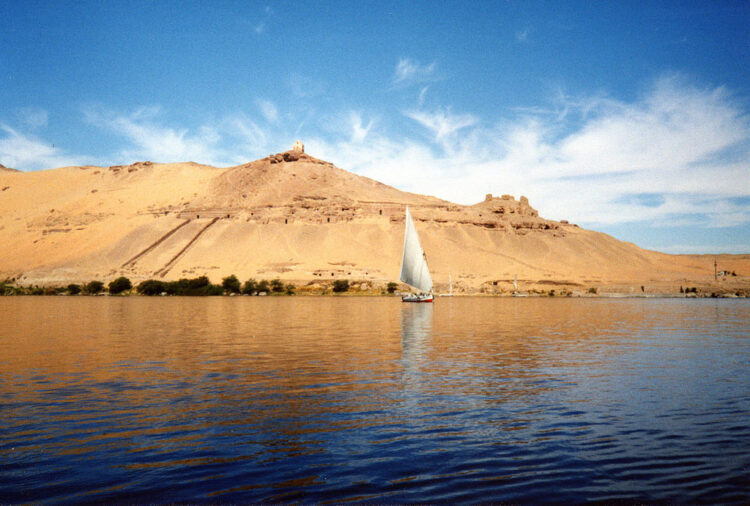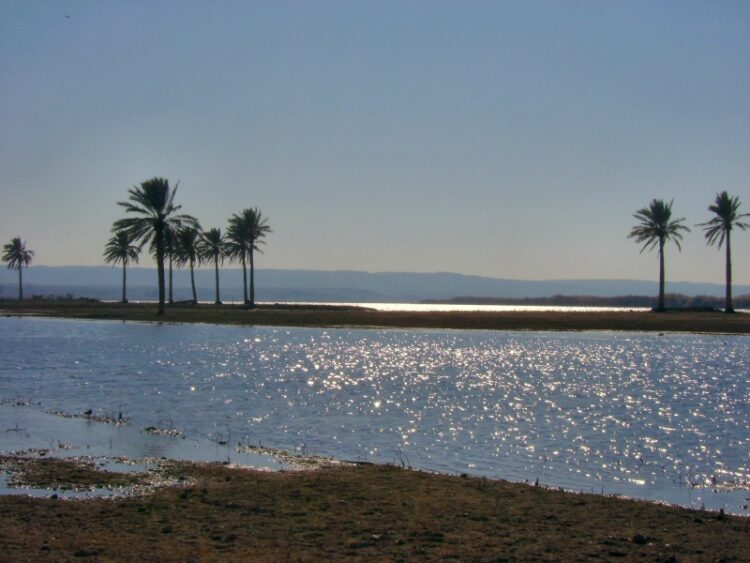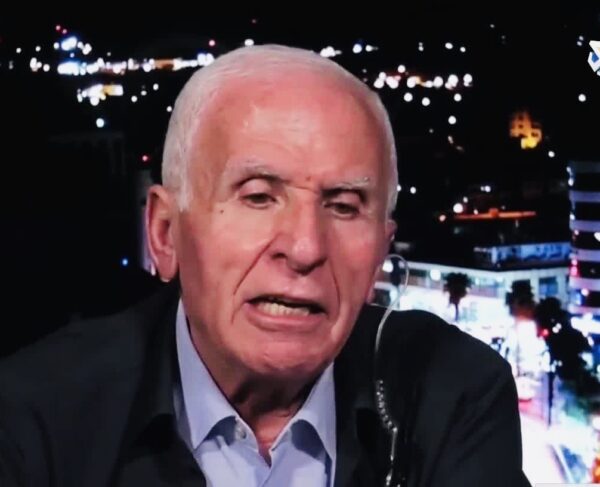Azzam Al-Ahmad, a senior Palestinian official, recently told Qatar’s Al-Araby television network that Israel aspires to expand its borders from the Nile River in Egypt to the Euphrates River in Iraq.
Portraying the Palestinians as the guardians of Arab interests, Al-Ahmad, a member of Fatah’s Central Committee, said, “We, the Palestinians, are defending all of you. We are defending Mecca, Baghdad, Cairo, Amman and Damascus. This is our destiny as Palestinians.”
And then he added this priceless nugget,”We are the sentinels in Jerusalem who defend it against the Zionist territorial designs from the Nile to the Euphrates.”
This is a nefarious myth, a conspiracy theory, that Palestinian and Arab nationalists have been recklessly peddling for decades now.
Long before Israel’s establishment in 1948, they accused the Zionist movement of seeking to create a Jewish state whose frontiers would stretch across much of the Middle East. Eventually, they settled on a catchy slogan that captured the imagination of a multitude of Arabs and seeped into the mythology of Arab politics.

The fantastical notion that Zionists sought to establish a Jewish state from the banks of the Nile to the shores of the Euphrates was so widely accepted and internalized by all classes of Arabs that it entered into the realm of conventional Arab wisdom.
The former president of Egypt, Gamal Abdul Nasser, perpetuated it in a number of fiery speeches. Syria’s former minister of defence, Mustafa Tlass, reversed the order of this infamous slogan, claiming that an inscription, “From the Euphrates to the Nile,” was chiselled over the entrance of the Knesset.

No such inscription was ever carved into the walls of Israel’s parliament, but this was of no concern to Arabs intent on proving that Israel was a colonial, imperialist country bent on gobbling up Arab lands.
Prior to the 1993 Olso peace process, Yasser Arafat, the chairman of the Palestine Liberation Organization, occasionally utilized this slogan to underscore his belief that Israel was inherently expansionist. Unfortunately, this slogan still carries weight in important Palestinian circles.
After the Islamic revolution in Iran, Iranian leaders from President Akbar Hashemi Rafsanjani to Ayatollah Ali Khomeini fell back on that slogan to justify their opposition to Israel’s existence.
Right-wing Zionists who propagated a Greater Israel philosophy before and after Israel’s creation are partly to blame for encouraging Arabs to think that the aim of Zionism was to expand the boundaries of the Jewish homeland and state. Yet even these firebrands never spoke of borders extending from Egypt to Iraq. Their outsized territorial ambitions were strictly limited to Palestine.
Nonetheless, Arab propagandists made hay of their pronouncements, deliberately exaggerating the objectives of the Zionist movement so as to whip up support for the Palestinian cause.

So the slogan “From the Nile to the Euphrates” was enshrined in Arab and Palestinian rhetoric, sowing greater misunderstanding and acrimony between Jews and Arabs, poisoning attitudes toward Israel, and rendering a resolution of the Arab-Israeli dispute all but impossible.
Arabs should be reminded that if Israel had been so land hungry, it would not have withdrawn from the Sinai Peninsula after the 1956 Sinai War. Nor would Israel have relinquished territory in the wake of the 1973 Yom Kippur War and the wars in Lebanon in 1982 and 2006.
Arabs should also remember that Israel unilaterally pulled out of the Gaza Strip in 2005, and that from the 1990s onward, several Israeli prime ministers seriously considered the possibility of withdrawing from the Golan Heights in exchange for peace with Syria.

These are facts, not fantasies. Yet Azzam Al-Ahmad could not resist the temptation of descending into the swamp of baseless and malicious accusations against Israel.
The Palestinians are certainly entitled to statehood in the West Bank and Gaza, but their spokesmen would better serve Palestinian national aspirations if they adhered to the unvarnished truth about Israel and Zionism.
